Contributing £ 4
Be acknowledged as a supporter
Get the warm fuzzy feeling of doing something good! You will optionally be named in the acknowledgements of all publications coming out of our study.
> 09 Co-financiers
Goteo ha construido una historia única en el mundo del micromecenazgo. ¿Quieres seguir formando parte de ella?
Transbiome


 Min.
Min.
 Opt.
Opt.
Get the warm fuzzy feeling of doing something good! You will optionally be named in the acknowledgements of all publications coming out of our study.
We will email you a report of what we have learned from this study as soon as we have results!
ALSO:
Get a sticker that you can use to show your support of the Transbiome study!
ALSO:
Get an enamel pin you can put on your backpack, jacket or anywhere else to show your support!
ALSO:
Our study initiator, Clara Lehenaff, wrote a book of poems (in French) relating to being trans. You will receive a PDF copy of it.
ALSO:
We will invite you to a two hour webinar in which we will present the current state of the study, what we learned from it and the outlook for future research. After our presentation, we'll have a group discussion where you will have a chance to chat with others, ask questions about the study, and give input for what further research could be done.
ALSO:
Our study initiator, Clara Lehenaff, wrote a book of poems (in French) relating to being trans. You will receive a signed hardcopy version of it.
ALSO:
Our friends of Open Life Science are organizing an Ally Skills Training on Friday, 11 June 2021 from 15:00 – 18:00 CEST. This rewards gives you one of the free spots to learn and train how you can use your societal advantages to support others in your workplace and communities.
ALSO:
You get to spend an hour with our team, the ideal chance to learn how the study is progressing, what the current results are and ask any science questions you might have. This will most likely be done virtually via your favorite online video conferencing system. If you happen to be in the Paris region and the COVID-19 situation is such that it allows group meetings it can also happen in person!
We will also mail you the sticker, the pin and a physical copy of the book (see above)
ALSO:
Discovering the diversity of the neo-vaginal microbiome
 Task
Task
|
Minimum | Optimum |
|---|---|---|
|
Sequencing 20 microbiome samples
The extraction of DNA from the collected samples and subsequent sequencing will be performed in a commercial and specialized sequencing lab.
|
£ 2,406 | |
|
Insurance
French law requires a liability insurance when doing research involving humans, even it if it is low risk.
|
£ 619 | |
|
Sequencing 30 further microbiome samples
Ideally we aim to get 50 samples sequenced to analyze them, getting a more detailed picture of the microbial diversity.
|
£ 3,610 |
 Material
Material
|
Minimum | Optimum |
|---|---|---|
|
Supporter rewards
Needed for printing stickers, making pins, getting materials for shipping and postage
|
£ 436 |
 Infrastructure
Infrastructure
|
Minimum | Optimum |
|---|---|---|
|
Goteo + Bank fees
This is the commission that Goteo takes along with the bank transfer fees for us to actually get the crowdfunded money for the minimum goal.
|
£ 213 | |
|
Goteo + Bank fees
This is the commission that Goteo takes along with the bank transfer fees for us to actually get the crowdfunded money for the optimum goal.
|
£ 221 | |
| Total | £ 3,674 | £ 7,505 |
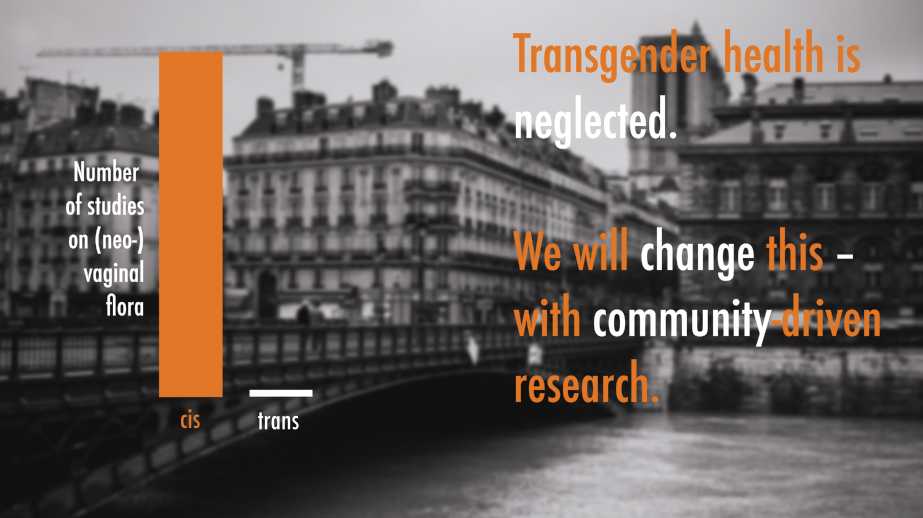
Transgender health is often neglected in medicine and research. This project aims to change that.
Many trans women have a new organ: the neovagina. Neovagina surgeries have been done for over 60 years, and the neovagina is fundamentally different to the vagina of ciswomen. It is an organ with real and important health needs! It can become infected, or otherwise suffer an unhealthy microbial environment.
Every part of our skin and body has bacteria and fungi that normally form a healthy microbial ecosystem. This is called the "microbiome". The microbiome can affect susceptibility to infections, inflammation, and more.
Frustratingly, while the vaginal microbiome of of cis-women is well-researched, virtually nothing is known about the neovaginal microbiome. Our research will change this by mapping out the diversity of the 'normal' neovaginal microbiome. Far more than has been done before!
Our team does not merely have strong research experience: this project was conceived by a trans woman, and a majority of our team is trans.
Vaginal infections are a common occurrence: Around one third of cis-women experience bacterial vaginosis and three out of four cis-women will experience at least one vaginal yeast infection in their life. But while these conditions are well understood for cis-women, these conditions are poorly understood for the neo-vagina of trans women, to a point that diagnosis, testing and treatment are often unavailable or unsuccessful. This is a direct result of a lack of basic knowledge about the microbial community that colonizes the neo-vagina after its creation. Given the lack of even basic research about transgender health, our goal is simple: we aim to perform a pilot study that helps to map the microbial diversity found in trans-women’s neovaginas, providing urgently needed basic knowledge about it which can inform future research which can help trans women to get adequate gynecological health care.
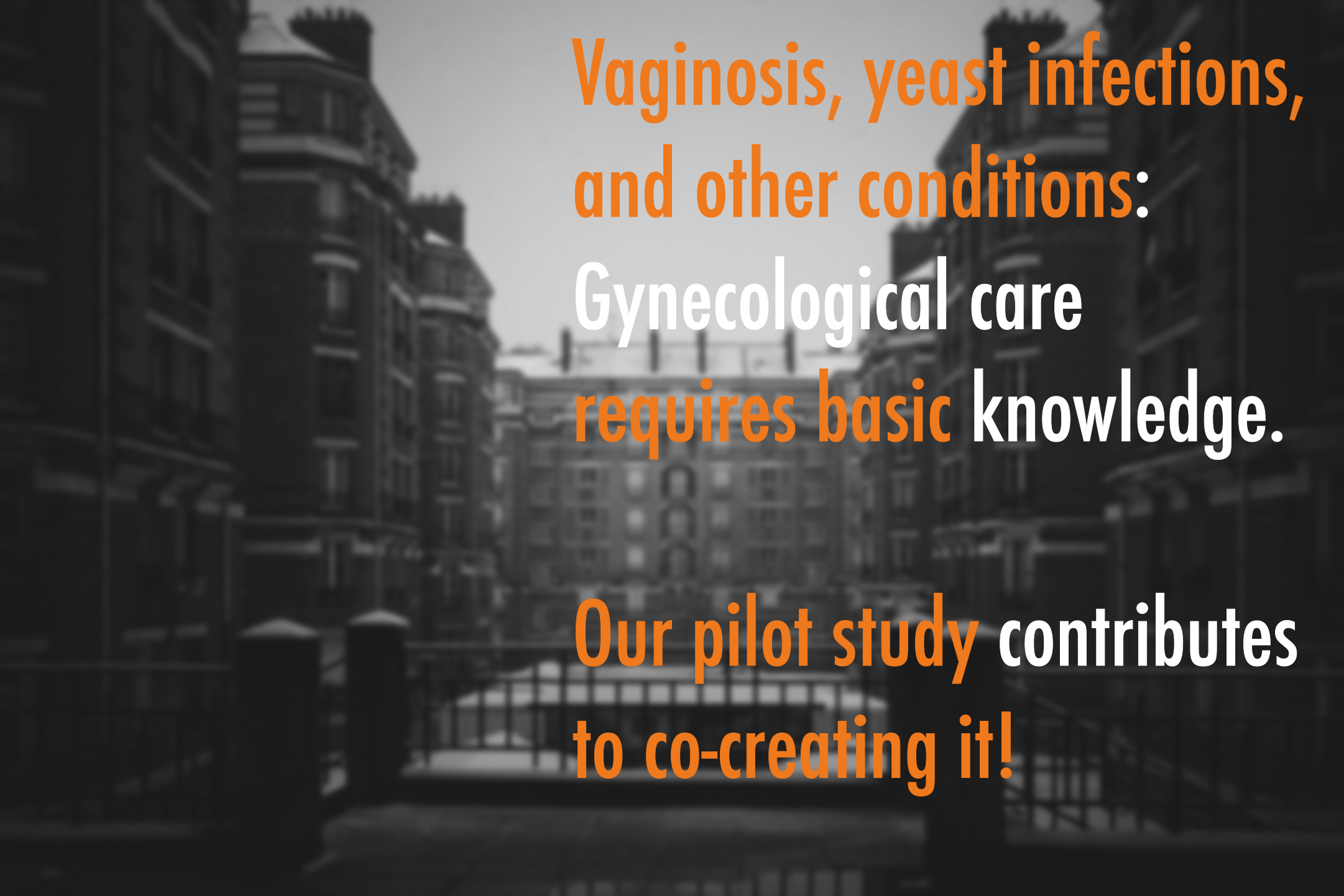
As a community-led project, our research questions and methodologies were shaped from input of the trans community. As a result we want to have a diverse sample, covering different vaginoplasty methods, post-operative care strategies and timeframes after surgery, which would make it possible to also observe if different methods and strategies lead to different microbial communities. To enable this, our goal is to work with up to 50 trans women from across Europe who are willing to provide a microbial sample of their neo-vagina.
All participants will take their microbial swap with a simple collection from their own homes and anonymously send it back to our study team. The fungal & bacterial DNA present in those samples will be sequenced, which allows us to identify which bacteria and fungi are present and in which proportions. These DNA samples will be complemented by a small questionnaire about the type of surgery, how much time has passed since it and the post-operative care strategies used.
The main costs associated with a study like this are: the sample collection kits themselves, the shipping for the sample collection kits and last-but-not-least the DNA sequencing. We already have identified appropriate home sampling kits and a DNA sequencing provider that is willing to make us a good offer for analyzing the microbial samples. But, given the general lack of academic research and funding for trans health care issues and our community-led nature of our project we need your support to make this important work happen:
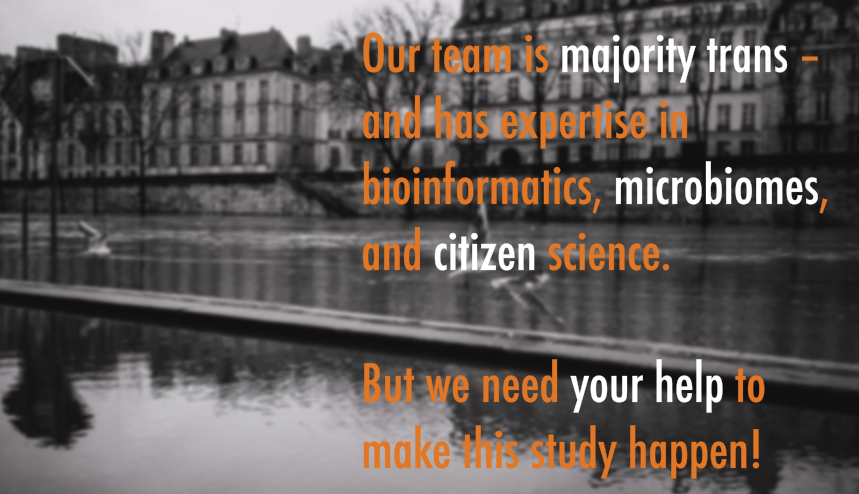
Trans people are frequently marginalized by healthcare systems – not only due to outright discrimination, but also because there is an extreme lack of knowledge amongst medical practitioners that is exacerbated by a lack of basic scientific research. To make matters worse, even if research is done it typically is done about trans-people and not with them, leading to research that doesn’t address immediate needs of the trans community. With our community-led approach, we designed a pilot research study that will provide some needed basic trans-research that is a necessary first step to provide knowledge that can be key for future gynecological treatments.
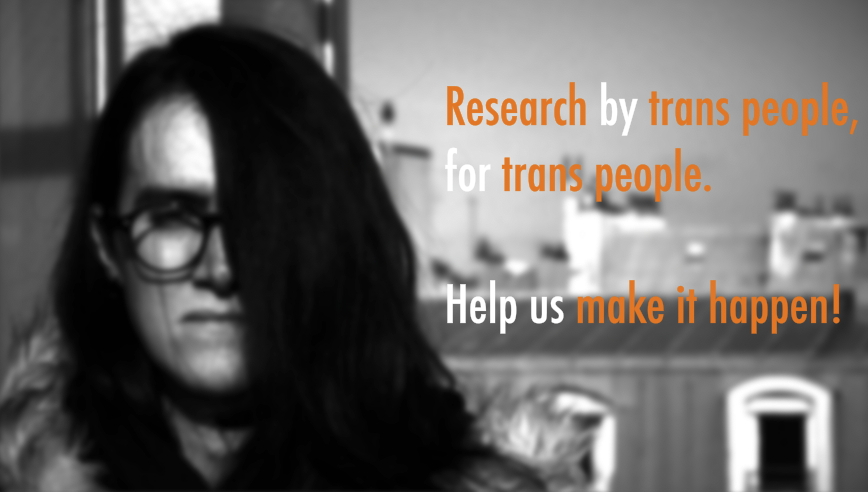
This project was conceived by a transwoman and is conducted in the Peer-Produced Research Lab at the Center for Research and Interdisciplinarity (Université de Paris, Inserm U1284) in Paris. While this project is community-initiated and -driven, it has undergone the traditional oversight mechanisms for scientific ethical review and is supported by a network of academics (both cis and trans) that are experienced in supporting such studies. Meet our team and their experience below:


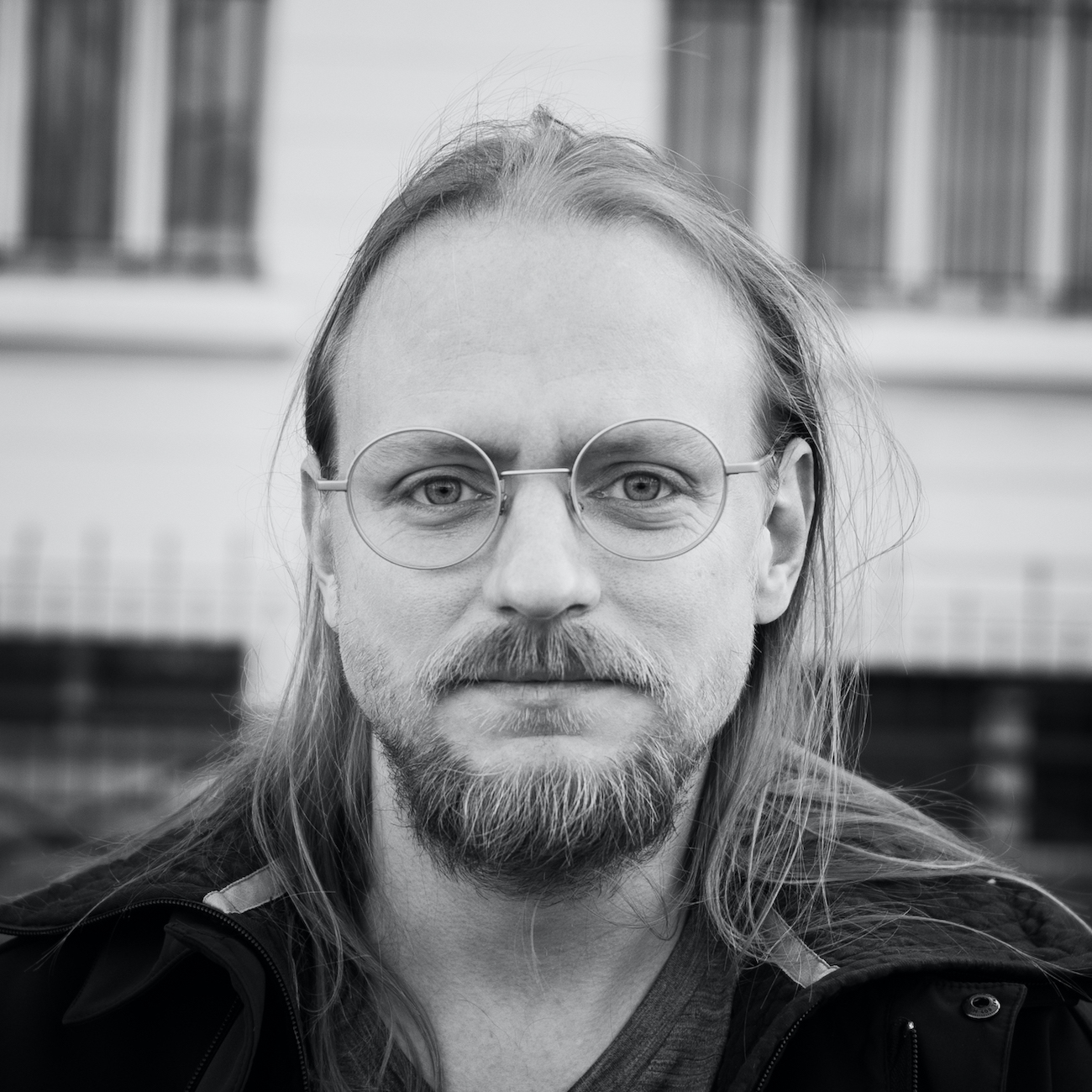
Clara Lehenaff
Clara conceived and initiated the Transbiome project. Coming from a computer science background, she joined the Peer-Produced Research Lab in 2020 as a bioinformatics M2 student. She’s a trans woman and a transactivist.
Mad Ball, PhD
Mad is co-advisor for this study and FtX non-binary, with experience in genomics as well as participatory and participant-led research. Mad is Executive Director of Open Humans, and is part of the Peer-Produced Research Lab as Associate Faculty at the Center for Research & Interdisciplinarity.
Bastian Greshake Tzovaras, PhD
Bastian started the Peer-Produced Research Lab and coordinator for this study. In addition to being experienced with participant-led research, he has a PhD in Bioinformatics and brings his experience in performing microbiome analyses. *@gedankenstuecke on Twitter

Giving back to the community at large is central to our project. Each participant will get access to their own neovaginal microbiome profile and furthermore we will release all – anonymized – data into the public domain using the Creative Commons Zero Public Domain Dedication. Furthermore, all scientific outputs such as publications will also be made available and will be released under open licenses.
Be acknowledged as a supporter
Get the warm fuzzy feeling of doing something good! You will optionally be named in the acknowledgements of all publications coming out of our study.
> 09 Co-financiers
Be well-informed (digital only)
We will email you a report of what we have learned from this study as soon as we have results!
ALSO:
> 49 Co-financiers
Get a sticker!
Get a sticker that you can use to show your support of the Transbiome study!
ALSO:
> 40 Co-financiers
Get a pin!
Get an enamel pin you can put on your backpack, jacket or anywhere else to show your support!
ALSO:
> 38 Co-financiers
An ebook of poetry (digital only)
Our study initiator, Clara Lehenaff, wrote a book of poems (in French) relating to being trans. You will receive a PDF copy of it.
ALSO:
> 08 Co-financiers
Join a webinar about the study (digital only)
We will invite you to a two hour webinar in which we will present the current state of the study, what we learned from it and the outlook for future research. After our presentation, we'll have a group discussion where you will have a chance to chat with others, ask questions about the study, and give input for what further research could be done.
ALSO:
> 23 Co-financiers
A physical book of poetry
Our study initiator, Clara Lehenaff, wrote a book of poems (in French) relating to being trans. You will receive a signed hardcopy version of it.
ALSO:
> 17 Co-financiers
Participate in Ally Skills Training
Our friends of Open Life Science are organizing an Ally Skills Training on Friday, 11 June 2021 from 15:00 – 18:00 CEST. This rewards gives you one of the free spots to learn and train how you can use your societal advantages to support others in your workplace and communities.
ALSO:
> 00 Co-financiers
(e-)meet the team
You get to spend an hour with our team, the ideal chance to learn how the study is progressing, what the current results are and ask any science questions you might have. This will most likely be done virtually via your favorite online video conferencing system. If you happen to be in the Paris region and the COVID-19 situation is such that it allows group meetings it can also happen in person!
We will also mail you the sticker, the pin and a physical copy of the book (see above)
ALSO:
> 02 Co-financiers
Do you know someone that could be eligible to enroll as participant in our study? Share a link to our project with them!